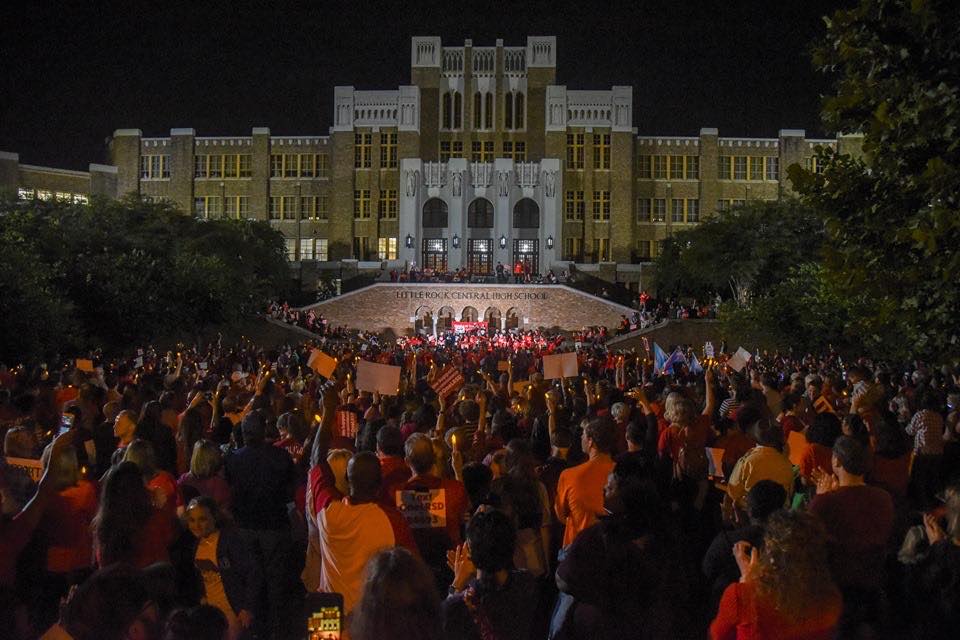 Thousands of Arkansas educators, students and community members held candles and sang in front of historic Little Rock Central High School last week, protesting a plan by the governor-appointed State Board of Education that would re-segregate the city’s students.
Thousands of Arkansas educators, students and community members held candles and sang in front of historic Little Rock Central High School last week, protesting a plan by the governor-appointed State Board of Education that would re-segregate the city’s students.
“Every single one of us, students, parents and teachers, should feel valued, heard and respected," said state Teacher of the Year Stacey McAdoo, a Little Rock Education Association (LREA) member, as she stood in front of a banner that read, "Separate Is Not Equal.” "Nothing should be done to us or about us without us. Our voices matter and so do the things we say. Let us remember that this is personal."
Educators were heard. And then, it seems, they were punished for speaking up for their students.
On Thursday, the board first backed off on its plan, at least somewhat, and then voted to eliminate recognition of the union. The Arkansas Education Association quickly responded: “For 150 years, our union has fought for students, and as long as children are being educated in our state, that will not change. We have never asked for or needed the blessing of the Governor or the state board to care for our students, and we will continue to fight for them now and going forward.”
“LREA is not going anywhere,” vowed LREA President Teresa Knapp Gordon. “We will continue to fight for our students. We will continue to fight for our educators.”
The state took over Little Rock schools in 2015. The original plan, which was adopted by the board two weeks ago in a hastily called meeting and never made available for public comment, would have rolled back state control of the north and west parts of Little Rock, where the city’s white students are more likely to live, allowing those schools to be run, in part, by a locally elected school board.
Other schools—with student populations that are mostly black and Hispanic—would have remained under state control.
“Their segregation plan drives our students back to 1957 and into a second crisis for Little Rock,” warned Gordon last week. “It’s unjust and will harm our students by creating a separate and unequal district.”
Last week, the state board backed off the original plan to divide the district, but it did not fully return Little Rock schools to local control, as parents and educators urged. Although its motion provides for a locally elected board, that local board will not be independent of state control; it will be obligated to partner with the state or an agent of the state, per a not-yet-negotiated memorandum of understanding.
It has been just two generations since the Little Rock Nine were prevented from entering the all-white Little Rock Central High by then-Gov. Orval Faubus in September 1957.
In more recent years, some Arkansas leaders have embraced new ways of undermining Arkansas’s students. The state is home to the Walton Family Foundation, and its national efforts to privatize public schools have taken root in the Arkansas governor’s office and Department of Education.
Recently, state legislative efforts have shifted from research-backed school improvements to unaccountable experiments like voucher programs and charter school expansion, along with massive tax cuts for the wealthy that make it harder to fully fund public schools.
These efforts to privatize and undermine public education may be the reason for the board's attack on educators of the Little Rock School District. As members of LREA and AEA, they are the best organized line of defense against profiteers working to dismantle public schools. Educators point out that it's a strategy that will backfire—the board's disregard for students and community members is shoring up support for Arkansas’s educators.
"We will not give up on our students," McAdoo promised. "They are not for sale."





